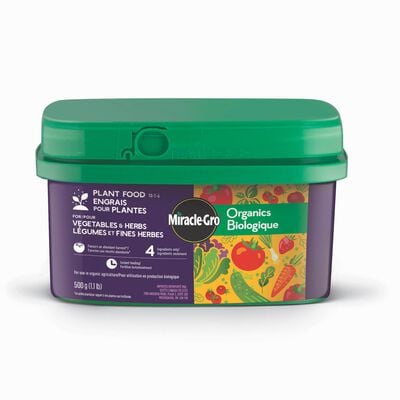
What's the Difference Between Organic and Traditional Gardening?
As organic fruit, vegetable, and herb gardening becomes more and more popular, you might find yourself wondering what the fuss is all about. What's the real difference, for example, between growing lettuce organically and growing it in a traditional garden?
It all comes down to this: While traditional gardening focuses on growing strong, thriving plants, backyard organic gardeners pay equal attention to creating a superb growing environment around and under those plants, including soil, food, insects, and wildlife. And, of course, organic gardeners seek to do that in the most natural way possible.
The focus on building a rich, vibrant soil ecosystem is probably the most important difference between organic and traditional gardening. Soil contains lots of life, including fungi, bacteria, other microbes, and small insects. These tiny organisms spend their days breaking down organic matter, helping plants absorb oxygen, food, and minerals from the soil, and helping the soil hold onto those elements until plants need them.
To build this kind of ecosystem, organic gardeners need to enrich their existing soil with organic matter like compost, which is filled with soil life. And while you could certainly start your own compost pile, creating really good compost takes time and a bit of know-how.
Here's a faster, simpler option: Mix Miracle-Gro® Organics Garden Mix for Vegetables and Herbs, which is blended with aged compost, in with your native soil to start your own ecosystem. Not only can you instantly create an organic garden base your plants will love, but you'll also be providing those beneficial soil organisms with extra nourishment in the form of micronutrients, so they'll continue to flourish and act as helpmates to your plants. If an organic container garden is more your style, build that ecosystem by filling those pots with compost-rich Miracle-Gro® Organics Potting Mix for Vegetables & Herbs.
Speaking of nourishment, fertilizer plays a slightly different role in organic gardens than it does in traditional gardens, too. Instead of being geared toward simply providing food for plants, organic plant food also feeds the soil so all those microbes can continue to work to make even more nutrients available to your plants. Miracle-Gro® Organics Plant Food Granules for Vegetables & Herbs and Miracle-Gro® Organics Plant Food for Vegetables & Herbs (a water-soluble fertilizer you'll want to apply every 7 days while watering) support both soil and plants, leading to a truly bountiful harvest. Whichever you choose, be sure to follow label directions!
Of course, there's also a difference in the plants when it comes to backyard organic gardens. Rather than just rows and rows of the same thing, organic gardens are filled with a wide variety of different plants that help each other thrive while providing food and shelter to the pollinators needed for a good harvest and the beneficial insects and birds that help keep pests at bay. Those plants don't have to start from seed, either. You'll save time—and arrive more quickly at a delicious harvest!—by planting strong young plants, which are already well on their way to maturity.
Big, productive plants flourishing in a super-supportive ecosystem—that's what the organic gardening fuss is all about.
.jpg?sw=400&sh=400)
